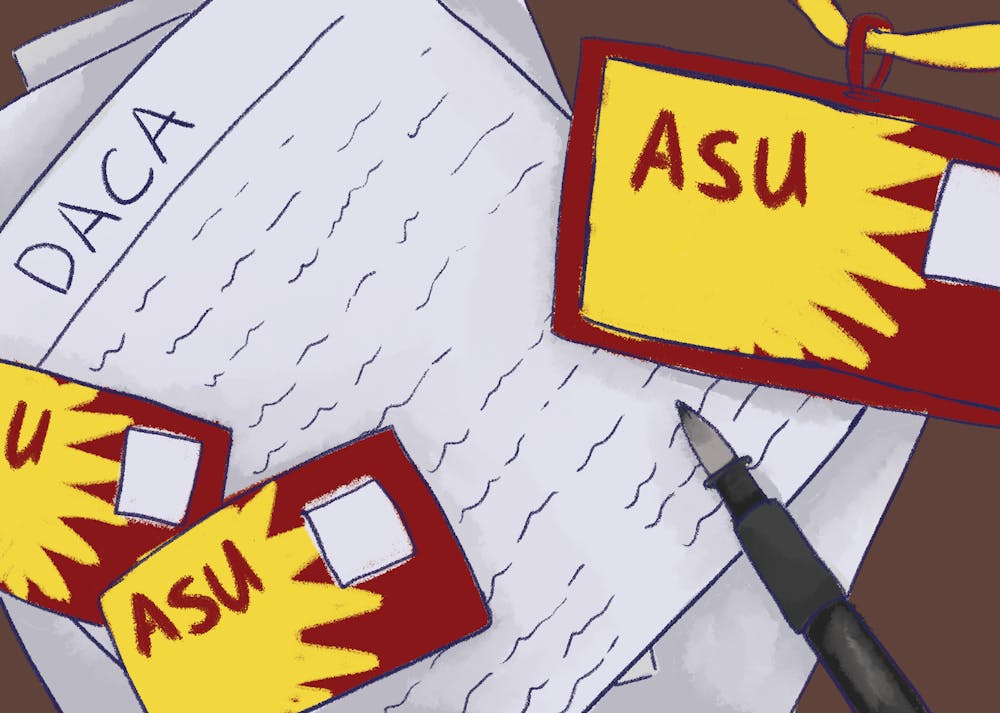President Joe Biden announced the final rule to codify the Deferred Action for Childhood Arrivals (DACA) program on Aug. 24, formalizing the program and protecting existing applicants. However, advocates say the move won't do enough to protect students.
The regulation would merely be a legal protection and doesn't establish the pathway to citizenship that its advocates have been fighting for.
Since the new order would only benefit existing recipients, a majority of undocumented high school graduates will not be eligible to enter because they would have had to arrive to the United States prior to June 15, 2007.
"I kind of had my hopes up," said Jose Patiño, director of education and external affairs at Aliento, an organization that works with documented and undocumented students. "If it's not updated, the program itself will become irrelevant so it was disappointing."
The final rule comes after a decade of challenges to DACA, which was first instated under the Obama administration in 2012.
The original rule gave "deferred action" on deportation to children who were brought to the United States when they were under the age of 16 — but they must have been living in the country since June 15, 2007.
In 2017, the Trump administration tried to end the program, but was blocked by several lawsuits that eventually allowed current DACA recipients to renew their status, but it prevented new applicants from doing so. The Biden administration is still unable to process new applications due to a federal court order.
The rule is set to take effect Oct. 31, but it could possibly face challenges in court.
Maria Garcia, a junior studying political science and transborder studies, is a student affected by the court order. Her DACA application cannot be processed due to the court order, even though she's eligible for it.
"Basically, I've been waiting to apply for it since I was 9 years old because ever since I was little, I knew I was undocumented and I saw how my brother’s life changed drastically (when he applied)," she said.
Despite the eligibility criteria not being updated to include younger undocumented students, Lee Bebout, an English professor at ASU who studies DACA-related issues, said it could offer hope to students.
"I hope that it could give some sort of security and comfort to current and future DACA recipients, (but) it's still not good because the final step we need is citizenship," Bebout said.
Bebout wants to see federal legislation like the DREAM Act passed. The DREAM Act was a bill introduced in 2001 outlining a path to citizenship for young adults who were brought to the U.S. illegally as children. It failed in 2012 after losing bipartisan support due to increased xenophobic sentiment.
"Seeing my students, who are wonderful students, really hard workers and no different than the person sitting next to them in class and they weren't allowed to go to college and go to work … that made me passionate about undocumented students and their rights," Bebout said.
Garcia tried to apply for DACA during her sophomore year of high school but the Trump administration halted the program. She applied again in college, but shortly after the court order was issued and her application was stalled.
"DACA would give me a work permit so I would know in the future when I have graduated, I will be able to get a job," Garcia said. "...I don't know how to feel knowing that I probably won't be able to get a job in what I'm studying because of my status."
Garcia is part of Aliento at ASU, where students share updates and information on the program with each other to keep everyone notified.
"It's important to know that DACA is under threat and it’s given opportunities to so many people," Garcia said. "Dreamers should be given a permanent solution and not something like DACA that's in and out of the courts – stopped and not stopped."
Clarification: The headline of this story was updated Sept. 15 at 12:25 p.m. to clarify students' feelings about the DACA rule.
Edited by Reagan Priest, Piper Hansen, Sophia Balasubramanian and Kristen Apolline Castillo.
Reach the reporter at yhan99@asu.edu and follow @yoorihann on Twitter.
Like The State Press on Facebook and follow @statepress on Twitter.




